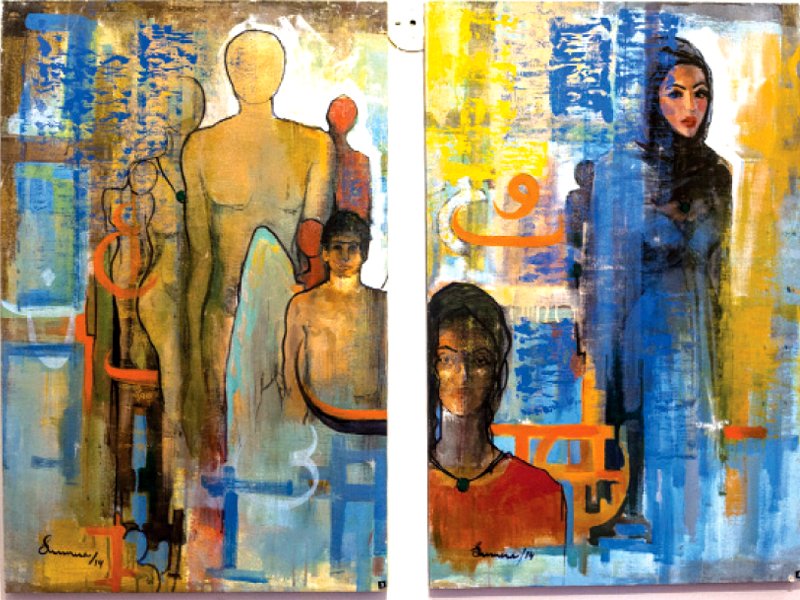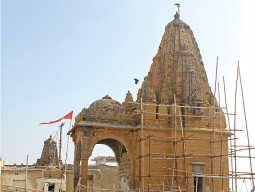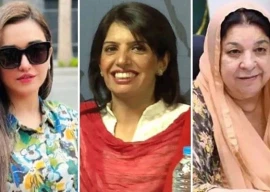
When Zia’s ‘Islamisation’ swept Pakistan’s streets some three decades ago, few imagined there was light at the end of the tunnel. Those who stood against the despotic rule and for tolerance and justice then, continue to worry about the future of a nation with an identity largely in flux.
Among those who braved the repression and batons of the establishment to etch its demands within Pakistan’s historical narrative, was the Women’s Action Forum (WAF).
Some of those who participated in the historic struggle against draconian laws in 80s recalled their experiences at a discussion centred on the theme of peace, tolerance and social justice, followed by book readings, poetry recitation and live music, at the Nomad Gallery to mark National Women’s Day.
The day is celebrated in the honour of the brave women who gathered on the Mall in Lahore on a day not much different from today, to challenge the misogynistic laws that served to impose religious ideals upon the trajectory of women’s rights. While the steely footfall of Zia’s regime might have faded, members of WAF related a sense of fear that echoed with the past in the wake of recent developments.

“Negotiating with banned outfits whose mandate has overtly terrorised schools, markets, women and children and refused to accept the constitution places the government in a position of weakness and this is frightening,” expressed Dr Rubina Sehgal.
She maintained that much of the constitution reflects the Shariah law and contradicts itself, branding Islam as the religion of the state - and thereby reducing minorities to second-grade citizenship - and then urging equality for all elsewhere.
Sehgal feels that unlike the regime that roused WAF to action, the threat today lies within impressionable people rather than the establishment itself.
“There seems to be no space to talk about tolerance and justice,” said Naseer Memon, who holds that inequality is a danger greater than poverty, and that draconian laws such as Pakistan Protection Ordinance serves to engender the sectarian divide that has left the nation at the fragile cusp of dissolution.

According to Memon, mainstream media has avoided the nationalist movements within Sindh and Balochistan, which have stemmed from a reaction to the ordinance that allows law enforcement agencies to victimise ordinary citizens upon mere suspicion of terrorism linkages.
“If we can negotiate with illegal outfits, we are entirely unwilling to address the political grievances of these movements,” he shared, explaining that the movements in turn see this as an act of suppression and disregard. “We are allowing the injection of religiosity to destroy any notion of peace and tolerance within the nation. The solution lies within equal treatment of all citizens, with opportunity for dialogue.”
Dr Mussarat Qadeem, member WAF and founder of the Paiman Trust, was of the view that Pakistan is wrapped within extremist tendencies, seated deep within its curriculum, media and education.
“It is different to hear about something in the news and to have your pulse on it,” Qadeem explained that the media had a role to play in the one-sided narratives that infuse mindsets.
“Nobody writes about the mothers whose children slipped into the hands of terrorist groups without knowing and are now entirely isolated by the state, by society and continue to be terrorized by those responsible for the absence of these children.”
Speakers were optimistic, however, that while the media was awash with state-nurtured narrative, there was room for the promulgation of laws controlling content, and that the combination of political and general will could make inroads to more just and tolerant society.
The discussion was followed by readings from Manto’s “Parday kee baatain”, Ismat Chughtai’s “Auratain” and original poetry by Aliya Naeem and Khalida Baabri, and rounded off with a performance by Arieb Azhar in perfect sync with the last dashes of sunlight upon the gallery’s cosy garden where the event was held.
A painting exhibition showcasing the work of 11 female artists was also on display at the gallery and artists included Tabassum Rizvi, Samina Akhter, Asma Abbasi Anjum Ayub, Samreen Arif, Sumera Jawad, Sidra Ali, Tayabba Aziz, Zahra Kazmi and Nahid Raza - the canvases reflected the complexities of womanhood, both celebrating and lamenting the role of women within the Pakistani landscape.
The WAF also urged members and guests to sign a petition urging the Chief Justice to reopen the Kohistan Video Case in light of the latest evidence that proves the killing of the five women featured in the video.
Published in The Express Tribune, February 13th, 2014.




1696778383-0/image-800x600-(32)1696778383-0-270x192.webp)












COMMENTS
Comments are moderated and generally will be posted if they are on-topic and not abusive.
For more information, please see our Comments FAQ